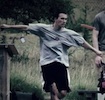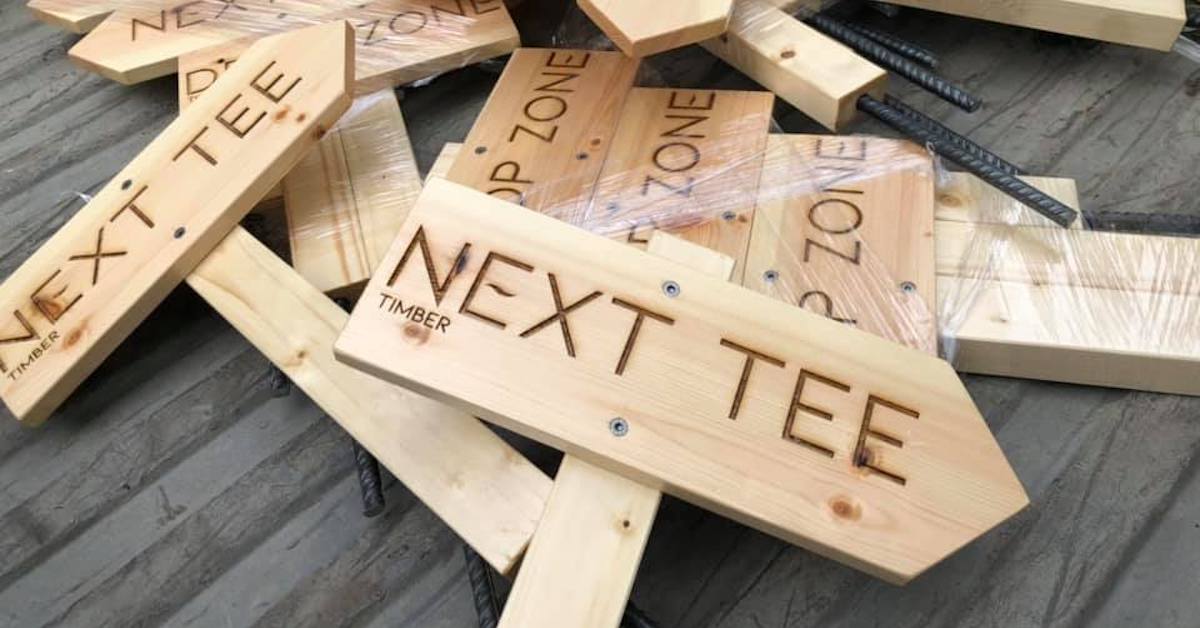
Imagine stepping onto a disc golf course on tournament day and being blown away—blown away by the sheer beauty, attention to detail, the perfect flow and challenge.
For some, these aren’t fantasies; they are memories from a competition that checked every box.
Events like these are few and far between for a reason. They don’t just come together overnight. Tournament directors with clear vision and strong organizational skills and small armies of volunteers make specific tournaments stand out from the rest. These dedicated people work tirelessly behind the scenes and put in countless hours to make their events memorable both for the players and the people who watch in-person or on video coverage.
It takes years of learning and fine-tuning to create one of these top-tier events. So how would a local tournament director running their first tournament—or a seasoned TD looking to move their annual B or C-tier up to A-tier status—know where to focus their time and attention when preparing a course for tournament play? To find out, we spoke with TDs from prominent tournaments to establish a checklist of focal points to make any event top notch.
Visual Appeal
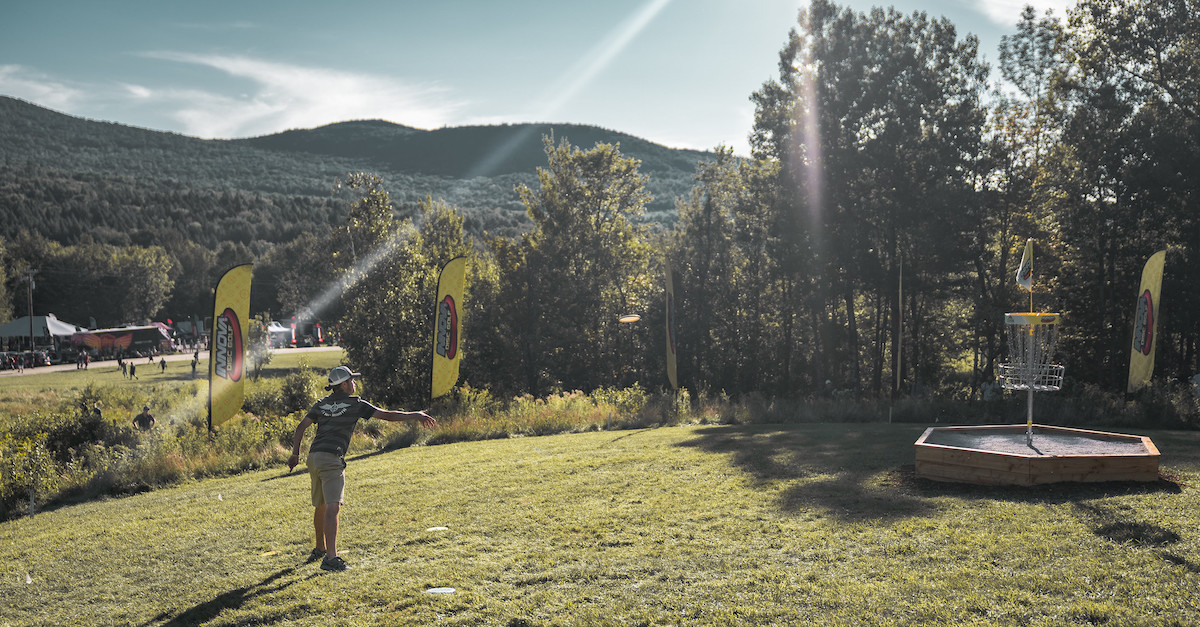
Making a course simply look great is a must for any solid event. Beyond the fact that no one likes brush-filled fairways, trash littering the ground, or the annoyance and possible ticks that come with high grass, upping a course's visual appeal also ups its playability. Clear fairways mean less chance of stray limbs or other debris altering shots. Mown grass means less time spent looking for discs.
For reasons like these, presenting a perfectly-maintained course is high up on Nate Heinold's list of priorities. Heinold has headed up the premiere event the Ledgestone Insurance Open for a decade and also directed the 2019 PDGA World Disc Golf Championships.
“I drive through our main showcase course several times the week before the event with my director of operations showing him things I want done,” said Heinold. “His job literally includes removing smaller branches from the fairway. If I think a roller could be negatively affected by a branch, I try to get it removed. Being a perfectionist can be challenging as there’s always something that can go wrong.”
Duncan Dixon, tournament director of the Canadian National Disc Golf Championships, also believes the beauty of the course should stand out. However, he thinks it is almost more important that signage and information make navigation of the course and other tournament areas easy for players and fans alike.
“When you drive up, you should see banners, feather flags, welcome signs, tents with discs for sale,” said Dixon. “It should look like you have arrived at a big event even if it’s a C-tier…Make sure tee and direction signs are easy to follow and in place for warm-up rounds, with information signs to the TD table or area, where to sign in or register, and a welcome sign so people know they’re in the right spot. This information can all be available on a website but should be clear on site as well.”
Assemble a Team and an Army of Volunteers
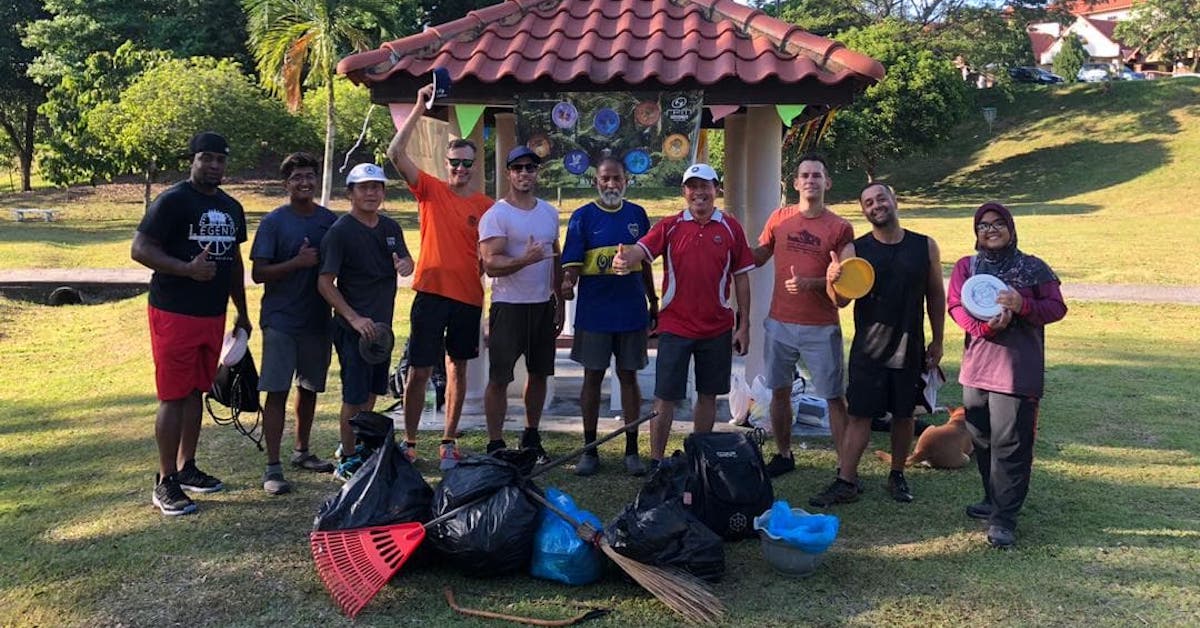
Though the culture has slowly been changing to favor one-course events, many large disc golf tournaments still feature multiple courses. Cleaning those up while running the logistics of a tournament with a field of players into the triple-digits doesn’t bode well for a one-person show. Both Heinold and Dixon have established a small team that lead the charge with them.
For Ledgestone, Heinold is assisted by his “top two lieutenants," Michael Munn and Jamie Kemp, while for Canadian Nationals, Dixon relies on his core team of Ben Smith and Don Lane, new additions Ryan Claire and Craig Sheather, and course owners Charlie and Bill Best. But even with Dixon’s team, the Canadian Nationals crew still delegates things like the players party, fly mart, and disc sales to others.
With all their knowledge and experience, both TDs agreed the preparation of the course and running the tournament in general would be impossible without the volunteers.
Most volunteers come from the surrounding disc golf community. Enlisting league members from nearby clubs and locals who love to play the course is the easiest way to do it, said Dixon.
With multiple people cleaning up the course, setting up check-in, or spotting during the tournament, time goes much quicker and relieves the stress load for the TDs.
“Our volunteers make this part of the event so easy,” said Dixon. “The spotters bring in banners and OB markers after the last round and help pack up tournament central after that. Without them it makes the job hours longer. With them we can be done in an hour.”
One final thing to remember is that a volunteer confident in their understanding of the TD's expectations and their tasks will always be more valuable than a less-certain one. By making sure volunteers are well-informed from the beginning, you empower them. Confident, competent volunteers will free up much more of your time because they will make fewer mistakes and ask fewer questions about minor decisions.
Organize and Attack
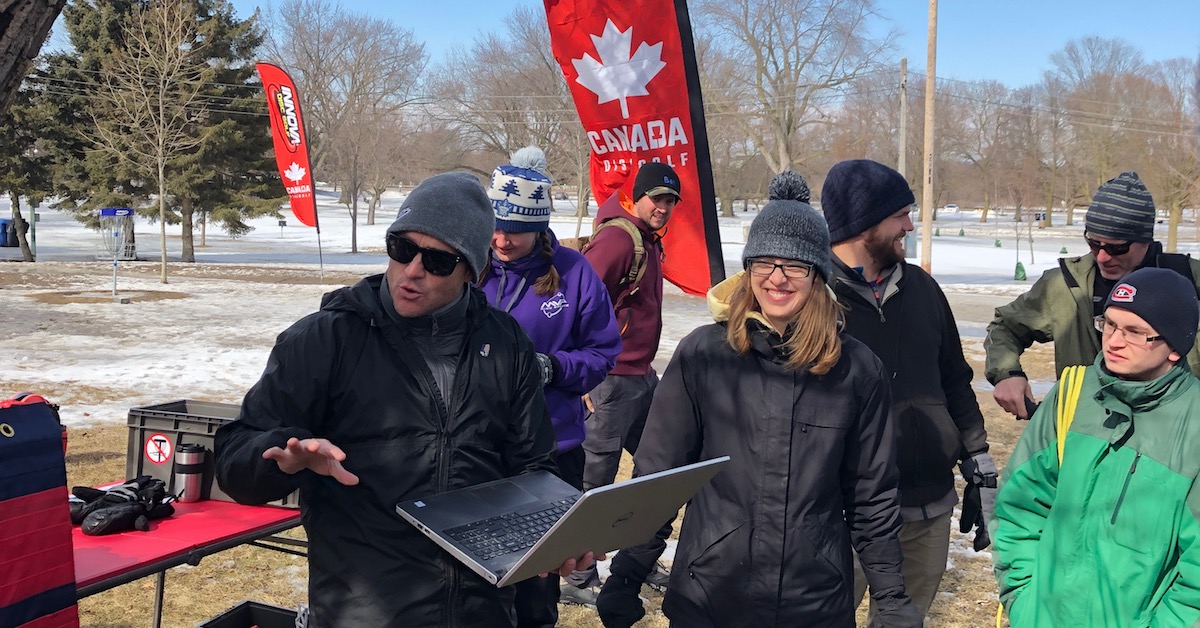
Volunteers make the course preparation manageable, but they need direction. Planning out and delegating jobs on and off the course begins long before the first tee off.
“Plan and prepare everything way in advance,” said Dixon. “If you can run your event with an hour’s notice a week before the event is supposed to take place, you’re in good shape.”
Dixon and his team start planning their event the week after the previous one ends. For him, making sure the course is safe ranks high on his list in the preparation and planning stage. Jobs like sweeping the tee pads, clearing dangerous debris, making sure water is available on the course, and keeping an eye on the weather are all jobs that he wants taken seriously.
Dixon is lucky in that his tournament takes place at the privately-owned Hillcrest Farm (which was #3 on our 2020 World's Best Courses list), so the course remains highly maintained throughout the year. That's not the case for Heinold's Ledgestone, which happens on a temporary course he erects each year in the public Lake Eureka Park that closes down for the occasion.
At Ledgestone, temporary tee pads are a big focus, but Ledgestone is legendary for its copious and meticulously marked OB, making Heinold's advice in this area particularly worth noting.
“Make sure the OB is marked correctly,” said Heinold. "Don’t assume it will work out fine. If a sticky situation with OB can happen, it will happen.”
In 2019, Heinold directed both the Ledgestone Insurance Open and the Professional Disc Golf World Championships with Peoria, Illinois hosting Worlds. The challenge of OB was even more prominent in that situation because the lines for the Ledgestone event in June were expected to be the same in August for the World Championships. But the temporary course was pulled after Ledgestone to return the park to its normal state, so Heinold had to take matters into his own hands.
“We spray-painted the lines where the ropes were every week to make sure we didn’t lose them,” he said. “Before Worlds, I actually got my personal mower to the course and mowed the lines where the ropes would go just so that the grass would be cut shorter.”
Mother Nature is In Charge
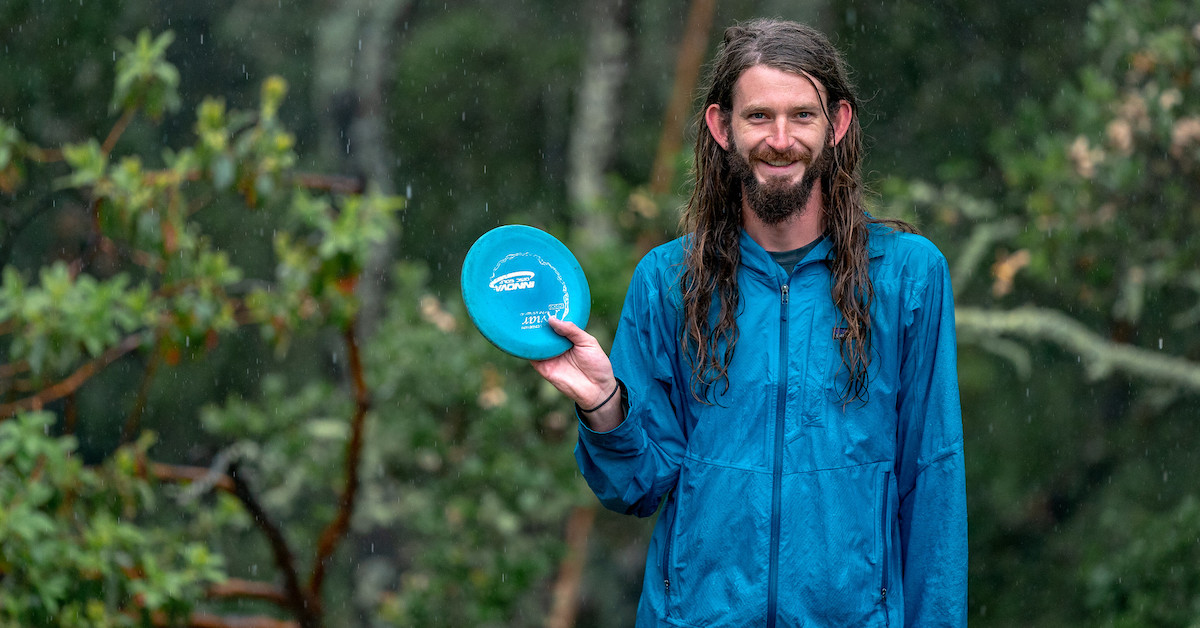
Both TDs only have one fear when running their respective tournaments. The same fear would be echoed by TDs around the world: the weather.
“It’s really the only thing out of my control,” said Heinold. “I can spend 12 months working on Ledgestone and the weather can have its way and wreak havoc. I start checking the weather forecast two weeks out and I don’t stop checking it.”
Not long ago, in the span of eight months, three high-profile events were cut short by Mother Nature. The USDGC in 2016 followed by the Nick Hyde Memorial and the Glass Blown Open in early 2017 all saw premature finishes. And then there was Dixon’s beloved Canadian Nationals.
Category 5 Hurricane Dorian, which wreaked devastation from the Bahamas all the way to Canada, had a direct influence on the 2019 Canadian National Championships which were played on Prince Edward Island.
“Worst fears came true,” said Dixon.
The amateur side of the tournament was cancelled as one course was destroyed with over 100 trees down. The professional side was able to complete the tournament but had to move to a shotgun start and only 13-hole rounds (the minimum number of holes to still be ratable by the PDGA) to get everyone in and out safely.
“The main lesson learned is you, as the tournament director, have to be willing to make a call,” said Dixon. “We made the call and it came from a place of knowledge of the area and the weather. You can’t be influenced by the people that are participating as you are responsible for them and everyone else.”
Final Words of Advice
The greatest events have TDs and a staff that aren’t looking for accolades. For both Heinold and Dixon, their final advice was to enjoy what you’re doing.
“We do it because we love the sport” said Dixon. “If you’re doing [tournament preparation] right, it should look like it was easy and therefore the average disc golfer would not realize it takes so much effort.”
